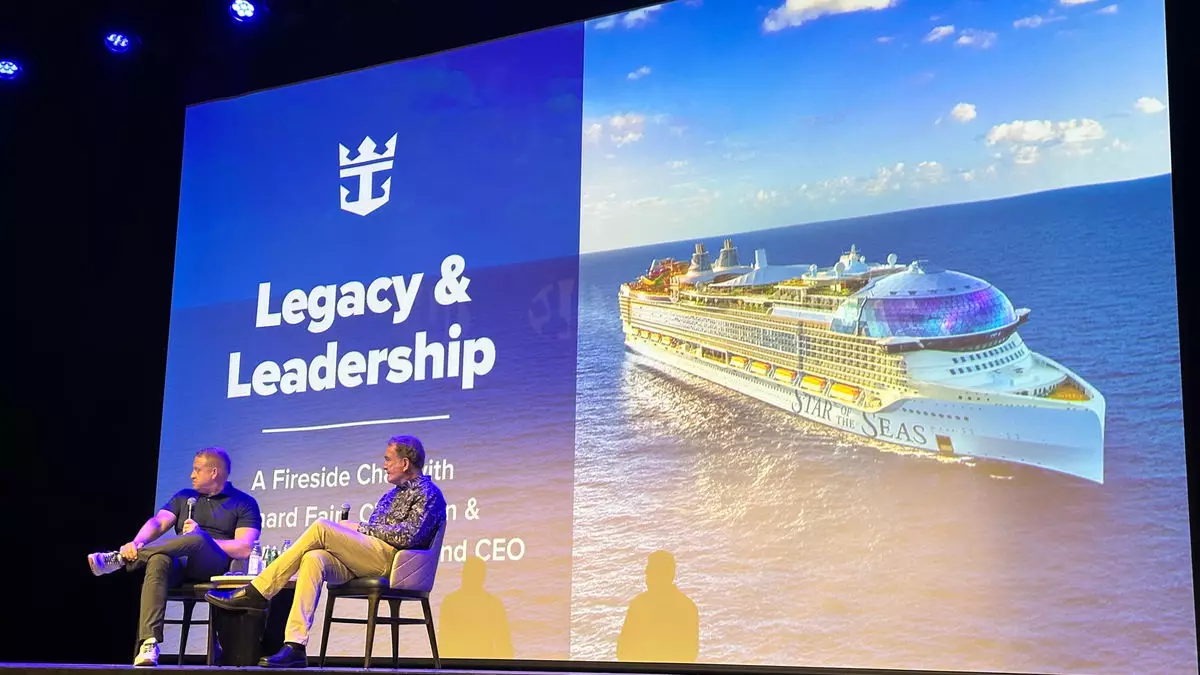In the world of luxury travel, few companies exemplify innovation, resilience, and visionary leadership like Royal Caribbean Group. The recent onstage dialogue between CEO Jason Liberty and the venerable Richard Fain—former long-time CEO and current chairman—serves as an insightful blueprint for aspiring leaders and seasoned executives alike. Their candid exchange underscores the profound impact of cultural foundations, long-term strategic thinking, and relentless innovation on creating a brand that defines an era. What stands out most vividly is not just their shared history, but their unapologetic focus on cultivating a purpose-driven environment where talent and culture coalesce to forge industry-changing experiences.
This dialogue illuminates a vital truth: Leadership is not merely about making immediate gains or chasing fleeting trends. It is about setting a sustainable course shaped by deep-rooted values, shared vision, and an unwavering commitment to excellence. Fain’s emphasis on people and culture as the bedrock of Royal Caribbean’s success offers an inspiring lesson—one that advocates for nurturing talent-rich ecosystems that thrive on the collective pursuit of greatness. Liberty’s acknowledgment of this legacy reveals an understanding that leadership’s true measure is the capacity to inspire trust, coherence, and relentless innovation over decades.
Culture as the Heartbeat of Innovation and Growth
The conversation also reveals a critical insight: authentic culture fuels innovation. Fain reframed the notion of innovation not as a parade of flashy features but as a cohesive, integrated experience that elevates the entire brand. Whether it was the humorous tale of attempting to deploy a blimp or the visionary idea behind the Perfect Day at CocoCay, these anecdotes exemplify how creative ideas—when rooted in a clear strategic vision—can lead to meaningful, industry-defining breakthroughs. The focus is on cohesiveness; each element must complement the whole rather than stand apart as a singular “wow” factor.
This approach is particularly relevant in an era where consumer experiences are increasingly driven by authenticity and shareability. Liberty’s recognition of the need to evolve beyond traditional tours into immersive, personalized moments underscores a broader industry trend: luxury travel is transforming from spectacle to meaningful storytelling. As travelers seek authentic connections and shareable memories, cruise lines must evolve accordingly, emphasizing unique, crafted moments over rote itineraries. Fain’s advice on long-term thinking is pertinent: success hinges on designing experiences that remain relevant five years down the line, not just for today’s headlines.
The Future of Travel: Innovation, Personalization, and Strategic Vision
Fain’s emphasis on strategic foresight points to a profound truth: businesses that prioritize innovation as a process—rather than a series of gimmicks—will thrive. His recollections of experimental ideas, like the ill-fated blimp, serve as cautionary tales and inspirations simultaneously. The takeaway is that disruptive ideas, even if they fail at first, often serve as stepping stones toward more refined innovations. This mindset fosters resilience, encourages experimentation, and ultimately leads to breakthroughs that can redefine industry standards.
Liberty’s perspective on the future of cruising reflects a confident yet thoughtful approach. Instead of chasing temporary trends, he advocates for creating meaningful, shared moments around experiences that resonate deeply with guests. The new generation of travelers craves connection—the kind that is authentic, personal, and memorable. Whether on massive ships or smaller vessels, the goal is to craft immersive stories that turn ordinary trips into extraordinary memories. This shift signifies a paradigm change: from mass-market itineraries to bespoke journeys that foster emotional bonds and deepen customer loyalty.
Fain’s subtle challenge—“that’s the question you have to answer”—underscores the critical importance of visionary leadership in defining industry trajectories. As the industry evolves, staying ahead will depend on continuous innovation, strategic agility, and an unrelenting focus on the customer’s evolving desires. It’s about creating a future where cruising is not just a mode of travel but a deeply personalized experience woven into the fabric of travelers’ lives.
A Leadership Model for the Digital Era
What remains profound in their dialogue is the underlying philosophy of leadership based on integrity, long-term vision, and a willingness to invest in people. Fain’s minimal endorsement of Liberty’s performance—“You’re apparently doing a good job”—belies a deeper recognition that effective leadership isn’t about instant results but about cultivating a culture that breeds sustained success. In an era where rapid digital transformation threatens to overshadow human connection, this philosophy offers a compelling alternative: lead with purpose, invest in your team, and maintain a clear sense of direction grounded in core values.
In essence, Royal Caribbean’s story is a testament to the power of strategic patience and cultural stewardship. The future of luxury cruising will belong to those who can harness innovation without sacrificing authenticity, who recognize that transformative experiences stem from a solid foundation rooted in talented people and shared values. Leadership is less about dramatically changing course and more about gently steering the ship through waves of change, keeping sight of the horizon—an enduring vision of redefining travel itself.
In a world brimming with fleeting trends, Royal Caribbean’s enduring success offers a beacon: Invest in your culture, trust your people, and pursue innovation with purpose.


Leave a Reply